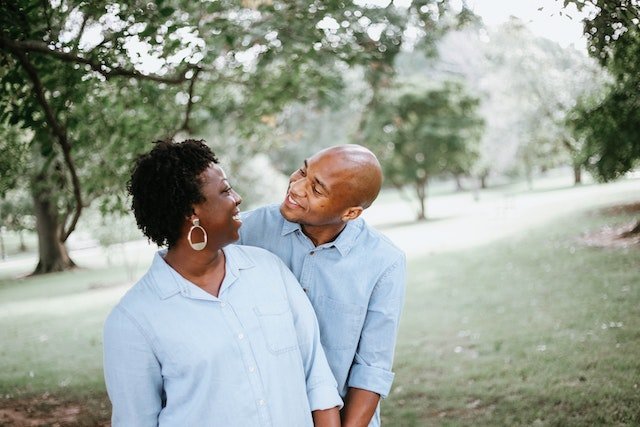Do you often worry about your relationship or feel anxious when interacting with a romantic partner? If you answered yes to either of these questions, you may be experiencing relationship anxiety. Relationship anxiety can stem from several factors, including fear of the unknown or worry about the future. It might manifest as insecurity, feelings of rejection, or concerns about the stability of your relationship.
When relationship anxiety lingers too long, it can cast a shadow over the connection you share with your partner. Left unchecked, it can contribute to commitment issues, frequent misunderstandings, and other relationship challenges. Recognizing the signs of relationship anxiety and understanding its roots are essential steps toward fostering a healthier, more secure bond.
What is Relationship Anxiety?
Relationship anxiety refers to the unease or fear that arises in the context of a romantic partnership. It may feel like constantly second-guessing your partner’s feelings, worrying about the future, or doubting the strength of your bond. These emotions are natural, especially in new relationships or during challenging times. However, when they become persistent, they can disrupt the joy and connection you share.

Factors That May Contribute to Relationship Anxiety
Relationship anxiety rarely emerges without reason. Several contributing factors can exacerbate these feelings, including:
Fear of the Unknown
The uncertainty about where your relationship is headed or what the future holds can fuel anxiety. Questions like, “Will this last?” or “Are we truly compatible?” may play on repeat in your mind.
Self-doubt
Insecurity and self-doubt can make you question your worthiness of love. These feelings often lead to fears of rejection or inadequacy, which can strain your relationship.
Communication Challenges
Misunderstandings or unspoken feelings can leave you wondering where you stand. Without open and honest dialogue, it’s easy for anxious thoughts to fill the gaps.
Past Trauma
Unresolved experiences from previous relationships or personal challenges can carry over into your current partnership, making it difficult to feel secure.
External Pressures
Societal expectations, family opinions, or financial stress can create a turbulent environment, allowing anxiety to seep into your relationship.
Lack of Boundaries
Relationships thrive when both partners have a clear sense of personal space and shared expectations. Without healthy boundaries, uncertainty and discomfort can lead to anxiety.

Life Transitions
Life transitions, such as moving to a new city, changing careers, or navigating a major life event, can disrupt the stability of a relationship.
Personal Insecurities
Concerns about appearance, career success, or past decisions can create vulnerability in your relationship, leading to anxious thoughts about how your partner perceives you.
Mismatched Attachment Styles
Differences in how you and your partner express or seek affection can create emotional disconnection, fostering insecurity about the stability of your bond.
How to Manage Relationship Anxiety
Although relationship anxiety can feel overwhelming, it’s possible to address and manage it effectively. Here are strategies to help:
Prioritize Communication: Open and honest communication is the cornerstone of a healthy relationship. Share your concerns and fears with your partner in a nonjudgmental way, creating a safe space to address worries together. Regular check-ins can improve understanding and strengthen emotional connection.
Carve Out Mindful Moments: Building meaningful moments together can reduce anxiety and reinforce your bond. Try activities like cooking a meal together, enjoying a walk in nature, or planning a tech-free evening. These small but intentional acts can foster a sense of connection and relaxation.
Set Realistic Expectations: Comparing your relationship to others, especially through social media, can set you up for unnecessary stress. Remember, every relationship is unique. Focus on celebrating your partnership’s strengths rather than chasing perfection.
Establish Healthy Boundaries: Defining and respecting boundaries creates a sense of security in any relationship. Discuss each other’s needs and find ways to honor them. Healthy boundaries can help reduce misunderstandings and promote trust.
Invest Self-Care: Anxiety often intensifies when personal well-being is neglected. Incorporate practices like regular exercise, mindfulness, journaling, or hobbies into your routine. When you feel grounded individually, it’s easier to show up as your best self in your relationship.
Reflect on Past Patterns: Taking time to explore how past experiences influence your present relationship can be enlightening. Journaling or discussing these insights with a trusted friend or therapist may help identify and address lingering issues.
- Seek Professional Support: If relationship anxiety persists, reaching out to an anxiety therapist or counselor can be transformative. A mental health professional can offer tailored strategies to navigate anxiety and strengthen your relationship.

Building a Stronger Foundation with Relationship Anxiety Therapy in Portland, OR
Managing relationship anxiety is a shared effort that thrives on understanding, patience, and communication. By fostering a supportive environment, addressing underlying fears, and embracing self-growth, you can build a partnership that feels secure and fulfilling.
If you’re looking for support in navigating relationship anxiety, our team at Mindful Mental and Behavioral Health PLLC is here to help. Our compassionate therapists and Psychiatric Mental Health Nurse Practitioners (PMHNPs) specialize in anxiety treatment and relationship support.
Finding Peace in Your Relationship
Relationship anxiety doesn’t have to define your partnership. At Mindful Mental and Behavioral Health PLLC, we offer compassionate and personalized relationship anxiety therapy in Portland, OR. Our mental health therapists can help you navigate fears, improve communication, and build a stronger, more secure connection with your partner. Ready to take the first step toward a healthier relationship?
- Contact us or schedule an appointment today to move closer to creating a resilient, enduring bond with your partner.
- Learn more about relationship anxiety recovery by reading our blogs.
- Start building a stronger, more secure connection in your relationship today.
Other Services We Offer in Addition to Anxiety Treatment
At Mindful Mental and Behavioral Health PLLC, we provide a range of services designed to support your mental health and well-being. In addition to anxiety treatment, our team of mental health professionals offers specialized bipolar treatment, depression treatment and trauma therapy. We’re committed to creating a safe and understanding space where you can explore your experiences, develop effective coping strategies, and work toward greater emotional stability. For those who may benefit from a combined approach, our medication management services ensure a personalized treatment plan that aligns with your unique needs. Whatever challenges you’re facing, we’re here to support you every step of the way.




